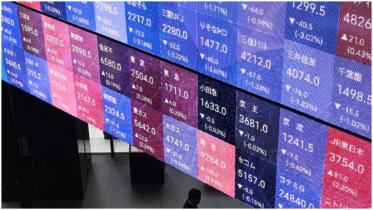SoftBank shares slump after $5.8bn Nvidia sale to fund AI projects

SoftBank Group shares fell sharply on Wednesday, dropping as much as 10 percent after the Japanese tech conglomerate revealed it had sold its entire stake in US chipmaker Nvidia for $5.8 billion.
Analysts said the sale was likely aimed at raising funds for large-scale artificial intelligence investments pledged by founder Masayoshi Son, including participation in the $500 billion US-based Stargate project.
Nvidia, whose high-performance chips power artificial intelligence models, saw its stock fall three percent in New York trading following the news.
Investor excitement around AI has driven a wave of billion-dollar deals and lifted tech shares significantly. The Nasdaq index has surged 25 percent since May, fueling worries that a speculative bubble may be forming.
Martin Peers of The Information described the move as “a sign of Son’s desperation to finance his commitment to OpenAI CEO Sam Altman,” adding that the Nvidia sale represented “spare change” for SoftBank’s growing AI ambitions.
SoftBank is a major investor in OpenAI, the developer behind ChatGPT, and has joined OpenAI and Oracle in backing the massive Stargate project to build AI infrastructure in the United States, first unveiled by President Donald Trump in January.
By mid-morning Wednesday, SoftBank shares were trading down 5.4 percent after an early plunge of 10 percent.
The company had reported on Tuesday that its second-quarter net profit more than doubled to 2.5 trillion yen ($16.2 billion), largely driven by gains in AI-related investments.
Chief financial officer Yoshimitsu Goto told Bloomberg News the Nvidia sale was made “so that the capital can be utilised for our financing,” without providing further details. He added, “I can’t say if we’re in an AI bubble or not.”
Mary Pollock of CreditSights acknowledged the strong market case for generative AI and OpenAI’s leading position but cautioned that valuations may be overheating. “While the picture today is rosy, the risk that AI valuations are frothy cannot be disregarded,” she said.
Pollock warned that continued investor confidence in AI’s growth potential will depend on how quickly the technology begins delivering real revenue and whether market expectations remain aligned with performance.
.png)




